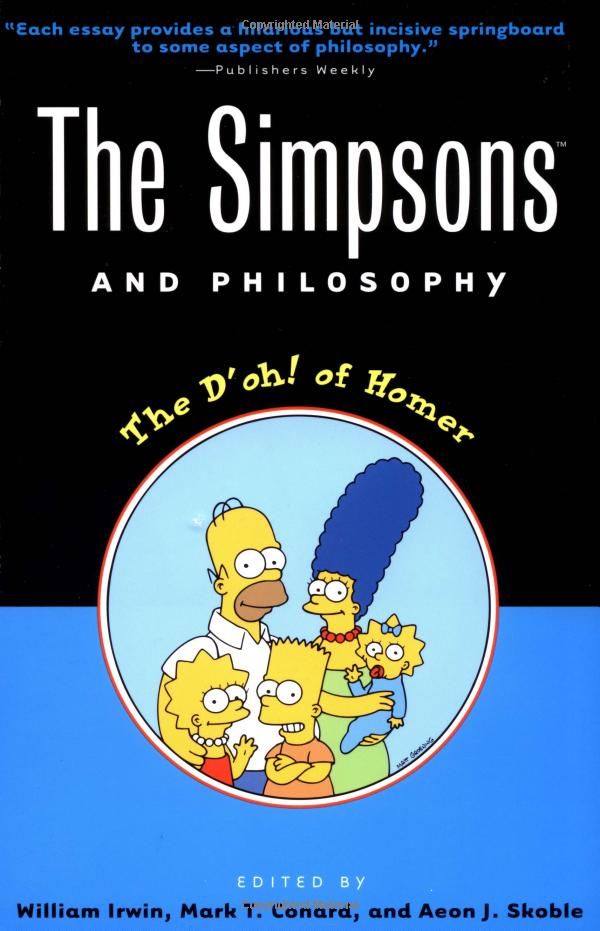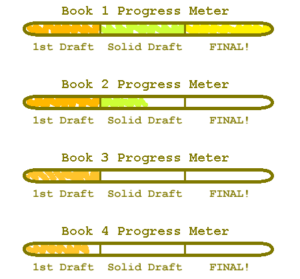When I have a really successful week followed by a slack one, it’s like New Me seeing Old, More Successful Me across the backyard fence. New Me struggles to assemble a pool while Old Me happily trims the bushes.
“Hidely-ho, neighborino!” says Old Me.
“RRRAAAAAUGH!” screams New Me as the pool explodes.
Who is the Inner Ned? He is, of course, Ned Flanders from The Simpsons, and apparently dwelling within my soul. The Inner Ned is hypersuccessful. He’s fast, he’s steady, he’s cheerful, he has time to manage a household and raise two perfect children and seems to do everything with a smile.
He appears to be the perfect human being! In fact, he is so perfect that when he tries to be encouraging to the Inner Homer Simpson, or to offer advice, all he provokes is resentment and rage!
Homer’s character in The Simpsons is not always furious and depressive (nor is Ned without failures and sorrows), but here, in the backyard of his home, he’s forced to see all his failures in stark relief. Ned has two joyous and obedient kids, but Bart Simpson is liable to kick Homer in the shin. Homer is also prone to comical failures, long stints in front of the TV, and doing nothing at work but saying “mmm donuts.”
When he sees Ned’s successes, he is not inspired to do more, to work harder, or even to work-smarter-not-harder. He just goes, “Stupid Flanders.”
For whatever reason, it seems impossible to be a Ned Flanders. Therefore, there must be no route to success. So the Inner Homer believes.
My Month of Total Productive Success
At the beginning of February, I instituted an experimental new scheduling system for myself. Ever week, I would set an overarching goal. I would track sub-goals day by day. Big or small, from “lift weights for 5 minutes” to “work for X hours,” they would all be worth 1 point. At the end of the week, all points would be tallied and I’d reflect on what I did, what I was happy or unhappy with, and what I would change for next time.
In my first week, I struggled with the learning curve. I took on too many projects per day and always missed one or two. And one day I went wandering around town for too long, tiring myself out and reducing the time I had for…anything else.
36/45 weekly points was not enough.
I chastised myself.
And the next week I became Ned Flanders.

Suddenly I had the right calibration. I prescribed just enough tasks for myself every day that I always felt active and wildly accomplished. And when attending to the tasks of the day, I flitted seamlessly from task to task. I was also fully convinced of the power of my goals—and how easily they could be achieved, as long as I put the time in.
I had achieved 50 points and the coveted 100 percent.
I started off the third week telling myself, “Okay, I know I just got a shot that will probably make me feel worse for a day or two, but that doesn’t mean I can’t do the work I normally do. Most of it is computer stuff anyway!” So I scheduled nearly as many things as I had the day before.
I missed three, feeling tired. But that was okay. I’d get ’em next time.
Sure enough, next time I overscheduled again, only finishing 2 out of 7 tasks.
It’s obvious to everyone that Homer’s got to work hard for everything he’s got. He’s either groaning or pratfalling every second he’s assembling that backyard pool. He may not fail, but it sure will take some time before he gets it right. This is like how I felt in my “failure week.”
New, Failing Me looked across the fence at his perfect shiny neighbor. There was no way New Me was going to reach Old Me’s level of success and sheer pointage—so why even try?
I decided that doubling down on task-doing wasn’t cutting it and tried to recover by setting lower goals so I could ease back into my old, speedy Flanders marathon. But instead of drifting back into that same high intensity, becoming that ideal, I became apathetic about the points that once served me so well.
Stupid points. This isn’t a Flanders Week and it’s never going to be one. Besides, points are arbitrary anyway. I don’t even care that I told myself to stick to one donut only; I will freely eat two (“mmm”) and regret it later (“d’oh”).
Now I’m closing out a second Homer Week. I’ve gone from sad and oddly self-resenting to meditating on what I could have done differently. Maybe that’s the key to a healthier, more sustainable Flanderization, a series of habits that can carry me for seasons and seasons to come.
What are some obvious and not-so-obvious ways I went too far—or not far enough?
Didn’t give myself weekends.
I freelance and work from home. Many of us have jobs that spill out into every minute of our schedules, every corner of our homes. Even if I can’t exactly have a home office, I can at least take strides to keep myself from replying to work emails on weekends, or working overtime, or working Saturdays and Sundays. I’ve also decided that if I have any errands that I need to go out for during the week, that outing should ideally be on Wednesday—so that in some small way, the errand can be a breather in the middle of my workweek.
Long story short, time labeled “break” should actually feel like a break! It certainly shouldn’t have just as many to-dos as the rest of the time (unless this is simply unavoidable). If I set these restrictions forward with strong will behind them, they’ll start to feel more natural, at least as normal as a break instituted on me by a big corporation.
Didn’t time tasks.
Doing my work (and even some of my hobbies) in shifts helps me keep everything I do in perspective. It also makes many tasks easier to track. “Did this for X minutes” can be easier to write up and check off than “finished this monumentally long task,” but indeed, several times in the past two weeks, I did write down, essentially, “finish this monumentally long task.” Ha ha, looks like taxes won’t be done this week!
Didn’t face the fear of minor struggles.
There are some hobbies that I “run to” for fun and predictable comfort no matter what else is on my schedule or in my long list of interests. Recently, it’s been drawing, which sometimes takes sustained attention and other times is close to mindless. Sometimes I can draw for hours. But drawing for hours means my day is filled with little else, which might give me a very Sad Homer-ish feeling: “I don’t care what else was on my planner. I don’t care if I finish nothing else. At least I’ll have a cool drawing (that I could finish on any other day instead).”
Alternatively, I could have edited more of that one story I’ve been trying to finish and release for the longest time…
Didn’t keep a handy list of the strategies I know help me focus.
Timers. Doing creative work early in the day. Sitting in My Special Work Chair or on My Special Work Exercise Ball Thing. Playing certain songs or albums. (Kenny G’s first album never fails to put me in a random cubicle somewhere.) When it’s warm out, I might take the work outside to a park. All of these are strategies I personally use that, for whatever reason, I keep on forgetting exist. Or, when things get dire enough, I actively shun them because I also…
Didn’t do things that were good for me (simply because they were labeled “Good For Me”).
Part of this feeling of self-resentment comes from only dully comprehending how Old Neddish Me could stand doing such oppressively wholesome and healthy things. Did Ned Flanders really watch that documentary instead of vegetating with the kind of comfort watch that sometimes leaves Homer satisfied but often leaves him bored, disappointed?
The more I do this, the more I’m bound to keep doing it. I begin to slip from regular and balanced meals; I keep slipping; I’ve fallen off; in the absence of sugary snacks, I make odd mixtures of butter, flour, and sugar that disappoint me more and more.
And another direct result of this tendency is that I…
Didn’t pursue the hobby I most love.
I am a reader, I love to read—but I’m a very inconsistent and distractable reader. I’ve been reading Midnight’s Children for…um…going on a year now, and in that span I’ve read a bunch of other books, including many spur-of-the-moment, hey-check-out-that-shiny-book,-I-can’t-possibly-walk-away-from-this-one library checkouts and purchases. When will I finish the recommendations from friends and family? When will I get to that copy of The Diamond Age that’s been sitting in my drawer untouched, in the exact same position, ever since I bought it!?
I want to be clear: this hobby, this problem, is specific to me. I don’t shame anyone for choosing not to read. Books are not the only fountain of information and relaxation (and dyslexia, eye strain, and so forth exist). But books are definitely my favorite source for information and relaxation—and books are things I want to write, so I better learn all about what makes a good one.
When I’m in this so-called Ned Mode, I’ll gladly do anything that’s good for me. But when I’m in Homer Mode, I’ll avoid and actively resent anything that’s good for me. Even if I enjoy it. I’ll avoid watching documentaries whose subjects genuinely interest me, or avoid reading exciting things on my shelf. The more I avoid them, the more I’m bound to keep avoiding them. And then I’ll start to wonder how that stupid Flanders managed to read so much interesting stuff back when he was on this side of the fence.
But…
Slowly I’m pulling myself back out of Apathy Junction and toward my new life in Realistic-Goals Central. Only then can I unite the grit and tenacity of a Homer with the ease and good cheer of a Ned. Only then can I quit this ridiculous business of resenting a former self who was mostly the same as my current self, only in a different emotional place, suffering different emotional burdens that happened to interfere less with his work.

INCIDENTALLY: There was this book in my high school library that I always dunked on because it seemed too dry, too boring, with all its attempts to liven itself up sabotaged by its overwhelming fog of squareness. That book was The Simpsons and Philosophy: The D’oh! of Homer. On account of the post I am making right now, I apologize.

How’s My Writing Progress?
As I alluded to earlier, I’m on a mission to finish a LitRPG that I’ve been working on as “a cute thing” for way longer than “a cute thing” should take. The last time I checked in about it, I moaned and groaned about the long process of setting up tables for the story. And yes…I’m aware I didn’t have to use any tables, and that I in fact went out of my way to make things harder on myself. Please read the blog post if you want the clownish, gory details.
And yet Catgirl System now has complete book files for Book 1! I guess I still need properly formatted Amazon covers, but yeah. It’s close enough that I feel comfortable returning to just-plain editing.
I think my ideal, Neddiest self would be editing 2-3 Catgirl chapters per day. I managed it Monday; maybe I’ll hit that level consistently soon. But in general, I’m going forward at no particularly amazing pace: a little less than one chapter edited a day, I guess? There is very substantial rewriting, to be fair. But I do have more wind in my sails because I just cleared Chapter 63, where an especially bad plot point was. Now it’s been excised. Discovery-writing rough drafts can be really, really rough.

Procrastinatory comfort drawing did at least help me finish the Book 2 cover and start on Book 3’s, so there’s that too.
I go on a pseudo-vacation soon (AKA a vacation where I still do work so it maybe doesn’t count), so I think it may be fitting and sorta poetic if I begin sharing Catgirl System online after I return. Catgirl System takes place in the summer, so it would also be cute if most of the posting of it took place in the warmer months of the year.
And…that’s about it! Things are progressing, even when I don’t feel like they’re progressing “fast enough,” and to some extent, I just gotta deal with it.

Thank you for reading, and Patrons, thank you for Patreonning.
For more griping about writing, read about how I found myself in an utter nadir of creativity just last month. Or for TV fun and hijinx, learn about weird and scary kids’ programming that they maybe shouldn’t make anymore. Or 4Kids TV, which IS NOT that weird and scary, strangely.
